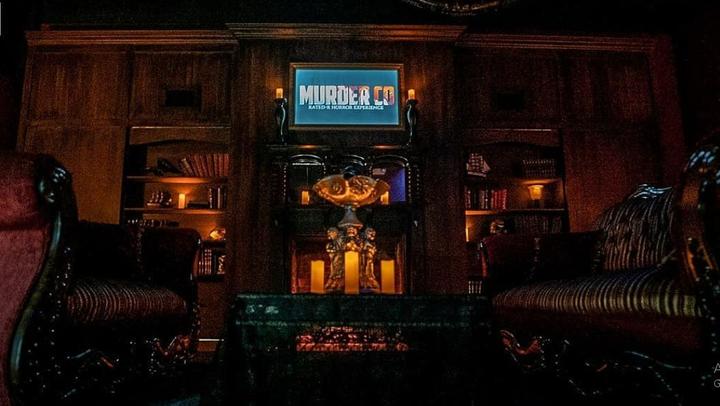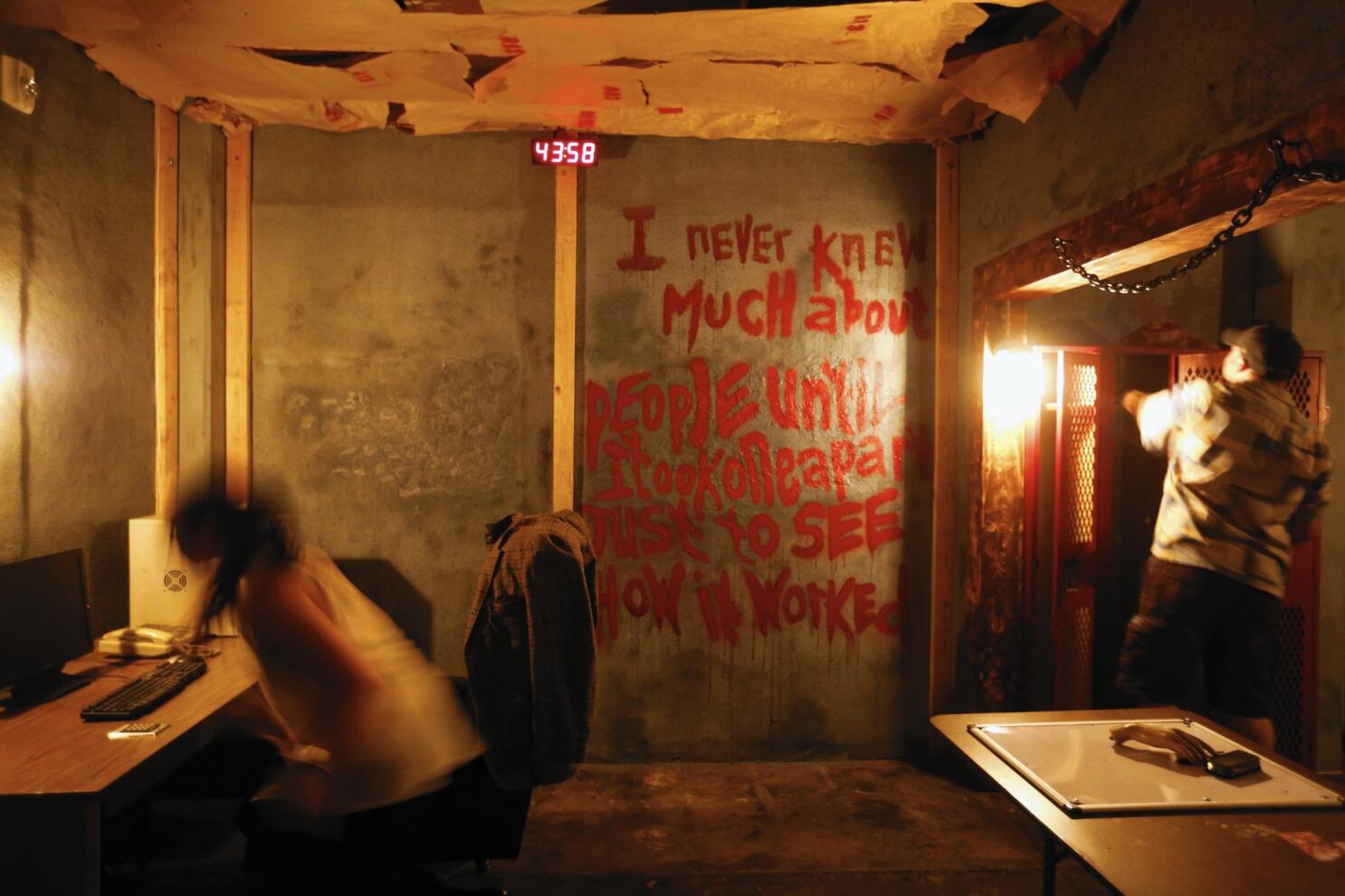Best Escape Room Experience-- Exciting Gamings and Puzzles for Teams
Best Escape Room Experience-- Exciting Gamings and Puzzles for Teams
Blog Article
Team Techniques: How to Collaborate Successfully in an Escape Area
Browsing the intricacies of a getaway space necessitates more than plain excitement; it needs a well-coordinated technique grounded in clear communication, strategic duty tasks, and skilled time administration. Teams have to proactively listen to each participant's insights, assign duties that straighten with private strengths, and keep normal check-ins to guarantee focus and prevent redundancy. By cultivating an atmosphere that values cohesion and flexibility, groups can considerably heighten their performance and success rates. The nuances of these strategies can change the experience, however how specifically can they be executed to optimize the capacity for success?
Establish Clear Interaction

To assist in clear interaction, it is essential to assign a main factor of contact for information circulation. Short, concentrated updates from each group member can keep the group notified without frustrating them with details.

Designate Roles Purposefully
While clear communication establishes the structure for efficient synergy, designating duties strategically makes certain that each team participant's staminas are made use of successfully. In an escape space scenario, the time-sensitive and complicated nature of challenges requires a well-organized technique to job delegation. By determining and leveraging specific expertises, groups can enhance their analytic capabilities and boost overall performance.
First, analyze the distinct abilities and attributes of each participant. As an example, someone with a keen eye for information could master discovering covert things, while a logical thinker could be much better fit to addressing puzzles - best escape room. It's equally essential to have a leader that can manage progression, take care of the timeline, and make decisive phone calls when needed. This function commonly calls for solid organizational and interpersonal abilities.
2nd, make sure that functions are versatile and adaptable. As new challenges emerge, the group has to have the ability to pivot, reapportioning jobs as called for. This flexibility aids keep energy and stops bottlenecks that could occur due to rigid duty jobs.
Inevitably, a critical strategy to function job not just makes the most of the strengths of each employee yet additionally cultivates a natural atmosphere, driving the team in the direction of an effective escape.
Make Use Of Diverse Abilities
Recognizing and using the diverse abilities within your group can considerably boost your performance in a getaway space. Each employee brings one-of-a-kind strengths to the table, and properly leveraging these abilities can quicken analytical and boost general efficiency. As an example, an employee with strong analytical skills could excel at decoding complex codes or patterns, while read this post here another with keen empirical abilities might quickly identify hidden ideas that others may forget.
Effective communication is crucial to utilizing these diverse skills. Urge employee to voice their understandings and concepts without delay, ensuring that all prospective options are taken into consideration. This comprehensive strategy fosters a dynamic environment where creativity and vital reasoning can grow. Furthermore, designating jobs that line up with each participant's strengths can avoid bottlenecks and guarantee that development is constant.
Moreover, diversity in abilities usually converts to diversity in thinking styles, which is important in an escape area setup. While some obstacles might need rational reasoning and accuracy, others could gain from imaginative and association of ideas. By recognizing and find leveraging this diversity, groups can attend to a wider variety of obstacles a lot more efficiently, thereby raising their chances of an effective getaway.
Manage Time Efficiently

First, designate preliminary mins for a fast study of the space. Determine visible puzzles and divide jobs based upon group participants' toughness, ensuring that nobody is still. Establish inner time checkpoints to review development regularly; as an example, aim to have half the puzzles resolved by the mid-point of the video game. This method can aid keep the group focused and stop time from escaping unnoticed.
Furthermore, avoid passage vision. If a problem is taking as well long, rotate employee or carry on to one more obstacle, returning later on with fresh perspectives. Interaction is vital-- keep every person updated on addressed challenges and remaining jobs to avoid repetitive efforts.
Finally, utilize any type of hints or hints sparingly however strategically - best escape room. Understanding when to ask for assistance can conserve important time. By sticking to these time management concepts, teams can dramatically improve their opportunities of a successful and satisfying retreat space experience
Debrief and Mirror
Reflection is an essential element of group development and renovation in the context of escape rooms. When the obstacle is completed, whether effectively or not, it is crucial for the team to engage in an organized debriefing session. This procedure enables employee to analyze their efficiency, identify staminas, and pinpoint areas for enhancement.
Start the debrief by reviewing what went well. Highlight particular instances of efficient communication, analytic, and collaboration. Identifying these favorable actions reinforces them and motivates their repeating in future obstacles.
Following, resolve the challenges ran into. Discuss moments of complication, miscommunication, or inadequate approaches. Encourage an open and positive discussion where group participants can share their viewpoints without anxiety of criticism. This fosters a culture of continuous improvement and discovering.
Conclusion
Finally, successful cooperation in a retreat area is asserted upon clear communication, strategic role jobs, the reliable use of diverse skills, and proficient time monitoring. Routine check-ins and organized debriefings are essential for keeping emphasis and fostering continual improvement. By developing a cohesive and adaptive team environment, the possibility of effectively solving puzzles and accomplishing the objective of running away the space is considerably enhanced. This strategy not only ensures success yet also advertises collective development and discovering.
Report this page